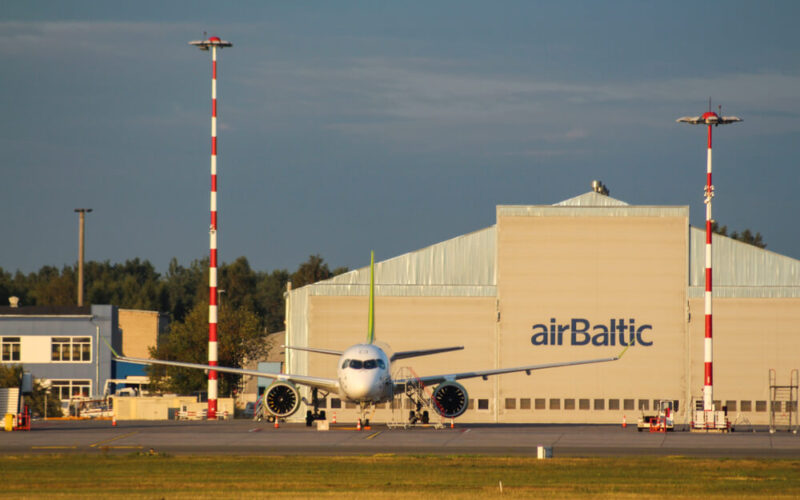airBaltic has received its 20th Airbus A220-300 jet, registered YL-AAT. The latest Airbus delivery completes the initial order of 20 Airbus A220-300 aircraft, inked back in 2016 when the A220 was still called the CSeries and manufactured by Bombardier. The latest delivery marks a significant point in the relationship between the Latvia-based airline and the CSeries/A220, as the carrier looks forward to more deliveries of the narrow-body – according to the airline two more jets are to join its fleet in 2019 alone.
After using the aircraft for almost two years, airBaltic decided to commit further to the CSeries and ordered 60 more – 30 firm commitments and 30 options for the PW1500G powered jet. The order came together with the announcement of a new business plan for the airline, called Destination 2025. The main goal is to increase connectivity from the three Baltic states capitals, namely Riga (Latvia), Vilnius (Lithuania) and Tallinn (Estonia), to key destinations in Europe with a fleet of over 80 Airbus A220 aircraft.
The airline is more than happy with the newest Airbus jet. During a presentation at the Paris Air Show, Martin Gauss, the Chief Executive Officer of airBaltic, noted that the aircraft type allows the airline to breakeven on flights with only 90 passengers. As a result, commercial routes that were previously too thin for the airline to open are now viable with the A220. The new horizons include the world’s longest A220 flight from Riga International Airport (RIX) to Abu Dhabi International Airport (AUH).
While RIX is the main hub of the airline, airBaltic has been trying to squeeze itself into the other two capital cities. Together with increased frequencies from Vilnius International Airport (VNO) and Tallinn Airport (TLL), the carrier has also positioned at the airports one and two dedicated Airbus A220 aircraft, respectively. While TLL welcomed the Latvian company with open arms and airBaltic accounted for 23% of total traffic in August 2019, becoming the number one airline at the airport, the story in Vilnius is different. Low-cost carriers dominate the Lithuanian market and airBaltic transferred only 8% of total passengers during H1 2019, according to data provided by Lithuanian Airports.
Nevertheless, the message is clear – with the economic efficiency of the A220, regional airlines can sustain their growth and fend off the threat presented by low-cost carriers. However, with Airbus commencing production at Airbus Alabama, the question remains whether there is enough demand for the aircraft to offset Airbus’ investment and manufacturing costs at both Montreal (Canada) and Mobile, Alabama (United States).

